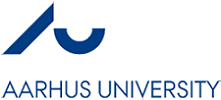Molecular Nutrition and Food Technology

Winter intake start date
2026-02-01
Winter intake deadline
2024-10-10
Introduction
As the media remind us on a daily basis, we are what we eat. The key message here – whether from health gurus or from medical advisors urging overweight people to tackle their problems by eating less and changing their diet – is that there is a link between the composition and quality of the food we eat and our health.
With the MSc in Molecular Nutrition and Food Technology, you can acquire the tools and knowledge required to develop nutritious foods – foods designed to reduce the risk of developing the lifestyle diseases of obesity, diabetes, heart disease, allergy and cancer.
Interfacing food technology, nutrition and health
The MSc in Molecular Nutrition and Food Technology is a collaborative effort between four main academic areas at Aarhus University. This broad foundation means that students are taught by experts in their fields and also that the programme is based on a holistic understanding of the importance of food for human health. As a student on the programme, you will gain insight into how new processing methods affect the functional characteristics of foods. The MSc degree provides knowledge of molecular biology and technical skills at the all-important juncture between food technology, nutrition and health.
The MSc in Molecular Nutrition and Food Technology is open to students with a BSc degree in the natural, technical or health sciences with a molecular biology content.
Research support
Students choose whether to specialise in molecular biology or food science, and may linked up with relevant research groups in one of the four main academic areas in connection with thesis and project work. Another option is for students to write their thesis at an R & D department in a private company in the food industry.
Career profile
The MSc in Molecular Nutrition and Food Technology equips graduates for jobs in research and development and for advisory or administrative jobs in the food industry as well as in the public sector. The degree can also be the stepping-stone to a research career: students can apply for admission to the university’s PhD programme either after the first year of the MSc degree or following completion of the thesis.
Food and Agricultural Sciences at Aarhus University
The field of Food and Agricultural Sciences at Aarhus University belongs to the elite among agricultural science institutions worldwide and carries out cutting edge research. The core areas of research are: Climate and natural resources, environment and bioenergy, organic farming, food quality, farm animal production and plant production.
Sustainability is a fundamental principle. The goal is to seek solutions that contribute to environmentally and economically sustainable development of the agricultural and food industries.
Food and Agricultural Sciences in the rankings
In the 2022 Shanghai Academic Ranking of World Universities, Aarhus University (AU) is number 19 in the field of Agricultural Sciences, in the 2023 U.S. News Best Global Universities ranking, AU ranks 55 in the same field. In the QS World University Rankings by Subject 2023, AU ranks 39 in the field of Agriculture and Forestry.
Na studia magisterskie mogą kandydować wszyscy, którzy ukończyli studia licencjackie lub inżynierskie (studia I stopnia), studia magisterskie lub studiują na ostatnim roku studiów I-stopnia. Studia, które planujesz powinny mieć zbliżony profil do tych obecnych lub ukończonych, ponieważ w procesie rekrutacji kluczowa jest ich zgodność programowa.
Wykaz punktów ECTS – osoby, które są jeszcze w trakcie studiów, muszą załączyć wypis punktów ECTS, w którym będzie wykazane, jakie przedmioty były realizowane na studiach oraz ile punktów za nie otrzymano.
Dyplom ukończenia studiów licencjackich lub inżynierskich – jeśli jesteś absolwentem wyższej uczelni, nie potrzebujesz wypisu, wystarczy załączyć dyplom ukończenia studiów wraz z suplementem (w języku angielskim lub oryginał z tłumaczeniem)
Course description - należy przygotować dokument, zbierający cały sylabus ze studiów licencjackich. Takie sylabusy najczęściej są do pobrania na stronie uniwersytetu. Należy je przetłumaczyć na język angielski (można samodzielnie) i złączyć w jeden dokument. Warto też zapytać w dziekanacie uczelni, czy nie dysponują wersją angielską.
Oficjalna skala oceniania Twojej uczelni - możesz dostać taki dokument w dziekanacie Twojej uczelni lub skonstruować samodzielnie. W obu przypadkach dokument powinien zawierać pieczątkę dziekanatu.
Spełnienie wymagań w zakresie języka angielskiego można udokumentować w jeden z następujących sposobów:
IELTS – 6.5
TOEFL – 83 (Aarhus University TOEFL kod - 8935)
Uwaga: wymagania językowe mogą ulec zmianie. Przed wysłaniem aplikacji upewnij się jakie są wymagania językowe na konkretny kierunek bezpośrednio na stronie uczelni.
W przypadku zdawania certyfikatu IELTs upewnij się, czy uczelnia oprócz wymagań oceny końcowej nie ma również wymagań odnośnie ocen cząstkowych.
You can be admitted to the master's programme if the university assesses that your education has a level, scope, and content that corresponds to the academic requirements specified below.
| Subject area | Number of ECTS |
| Biochemistry | 10 |
Courses within the subjects of chemistry, organic chemistry and analytical chemistry as well as molecular biology | 50 |
| Total | 60 |
